Dr Michael Jeyakumar Devaraj is a unique man on the local political scene. A medical doctor with no little knowledge of the law and economics, the former Sungai Siput MP has dedicated his life to helping the downtrodden with a socialist model as his guide.
His commitment to his principles and his party PSM meant that he made the difficult decision in 2018 that he would not defend Sungai Siput under the PKR logo, which he had won twice, but that he would contest under PSM’s own flag against a Pakatan Harapan candidate.
He promptly lost the seat that he was wrested from MIC heavyweight and long-time cabinet minister S Samy Vellu.
As he turns 67 this weekend, Jeyakumar (above) reflected on a lifetime’s struggle spent largely on the sidelines of the Malaysian political battlegrounds.
‘Malaysians misled over class struggle’
This month’s Johor election showed that Harapan is falling further behind a resurgent BN, but there is no sign of voters turning to PSM despite its reputation as a party of struggle.
Jeyakumar conceded that his party was battling against generations of political indoctrination that laid the emphasis on identity politics, not the class struggle.
“Well, firstly, the BN vote only increased marginally by 1 to 3 percent, but they did well because the anti-BN vote is now split between Bersatu/PAS (Malays) and Harapan (largely non-Malays).
“Electoral support for BN remains low – about 40 percent of the popular vote, but given the first-past-the-post system and the split in the opposition votes, BN did handsomely.
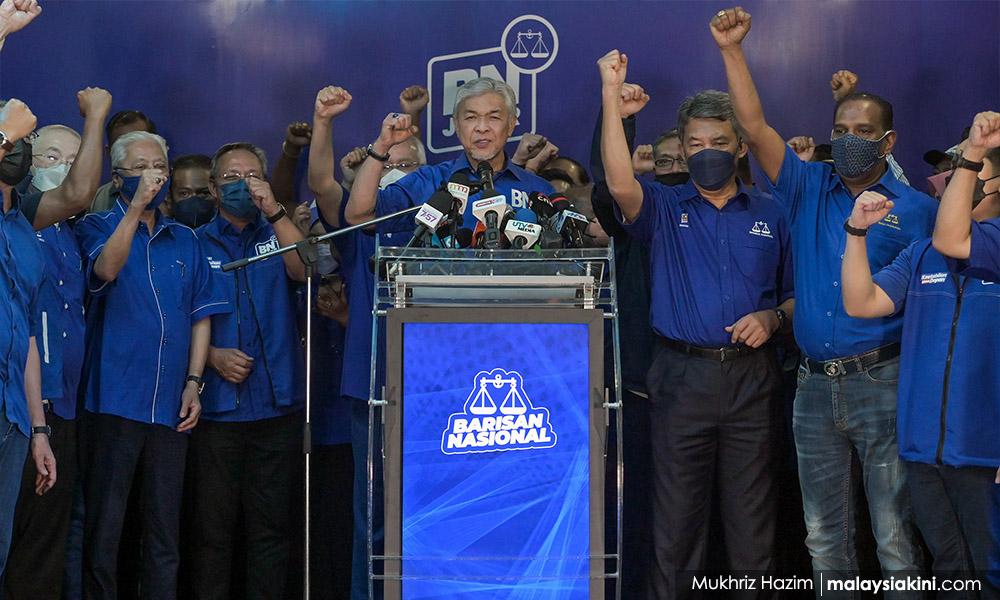
“At the same time, the fact is that the ‘market’ for PSM’s ideological brand is at present very narrow. Sixty years of ethnicised politicking has led to a massive eclipse in class consciousness in the Malaysian population.
“So the PSM has to, over time, reawaken this class-based consciousness before we can expect any improvement in electoral support,” said the PSM chairperson.
He said that Malay voters abandoning Harapan for Bersatu clearly want a party that would defend “Malay interests” while combatting kleptocracy in Umno.
“Some of the non-Malays who are pissed off with Harapan are disappointed that they did not move rapidly enough in dismantling NEP privileges. These positions are antagonistic, and PSM would not want to attempt to be the champions of either.
“PSM believes in a principled approach – is ethnicity still associated with a disadvantaged position in certain socioeconomic sectors? If so, what kind of affirmative action is still required to address the situation? How to ensure that the elites of the ethnic groups identified for government assistance do not hijack affirmative action?
“We think that addressing socio-economic imbalances by answering these questions in a principled manner is the route to better inter-ethnic relationships and the creation of a multi-ethnic political coalition to address corruption, sustainable development etc. But it is going to take a lot of footwork,” he said.
Still dominated by Indians
Another problem when it comes to reaching voters is that PSM is seen as an Indian-dominated party, with a majority of its leaders and rank-and-file members being from this ethnic minority. Would temporary quotas be a good idea?
PSM has a predominance of Indian members because of its origins in the estates and squatter areas in Selangor, Perak and Penang, explained Jeyakumar.
“Many of our area leaders joined the party. However, there are now more and more non-Indians joining the party – the Indian percentage has dropped from over 90 percent to about 60 percent now.
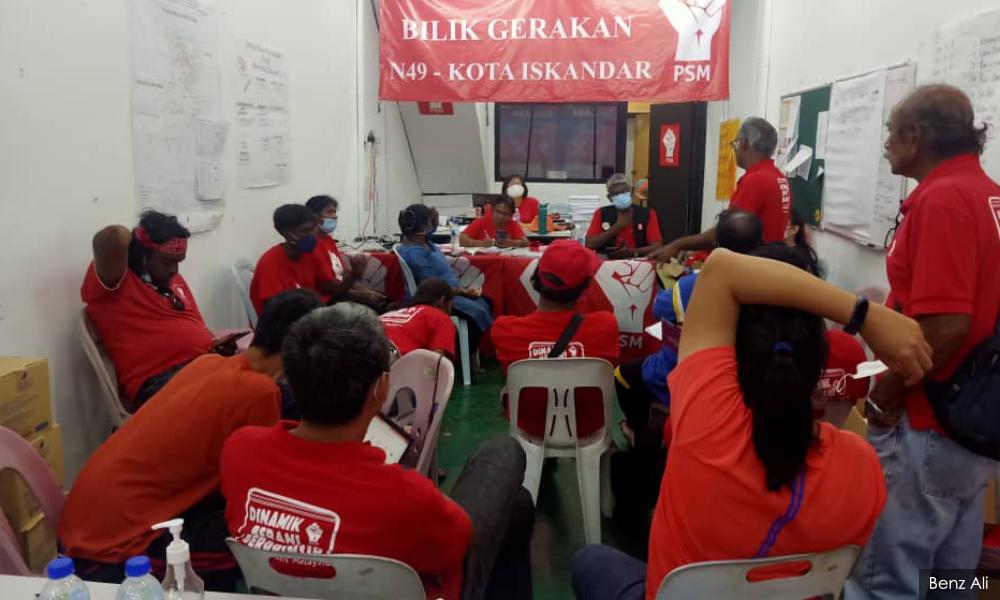
“To avoid being seen as an Indian party, PSM should continue to advocate for all poverty groups as is our ideological position. We should make an extra effort in understanding the socio-economic problems faced by non-Indian disadvantaged sectors and also create opportunities for the emergence of non-Indian activists and leaders,” he said.
“Quotas would not work well. In an activist party, one’s role as a leader is based primarily on the work that one does, and not the post accorded to you.
“If a designated leader does not turun padang, he or she will not be able to inspire confidence or influence the direction of an action or campaign,” he explained.
Is socialism an idea of the past?
Socialists are often talking about history, not the present, and there is a wide range of ideological strains of the left-wing. How important are the various ideological divides of the past given the situation today?
Jeyakumar believes that a good understanding of history is necessary for us to plan for the future.
“But we need to understand that the world has changed dramatically from what it was in the 1950s and 1960s. There is no longer a separate communist bloc in terms of economic organisation. Most of the formerly ‘communist’ countries have integrated themselves into the global capitalist economy.
“Key strategies of the 1950-1970 era such as immediate nationalisation of industries might not be quite appropriate now.
“Extremely fiery speeches about the ills of foreign capital might also not be a good strategy in an era where we are dependent on global chains to invest in factories in our countries. We need a change in strategies in order to meet our goals of humanising society in this new environment,” he said.
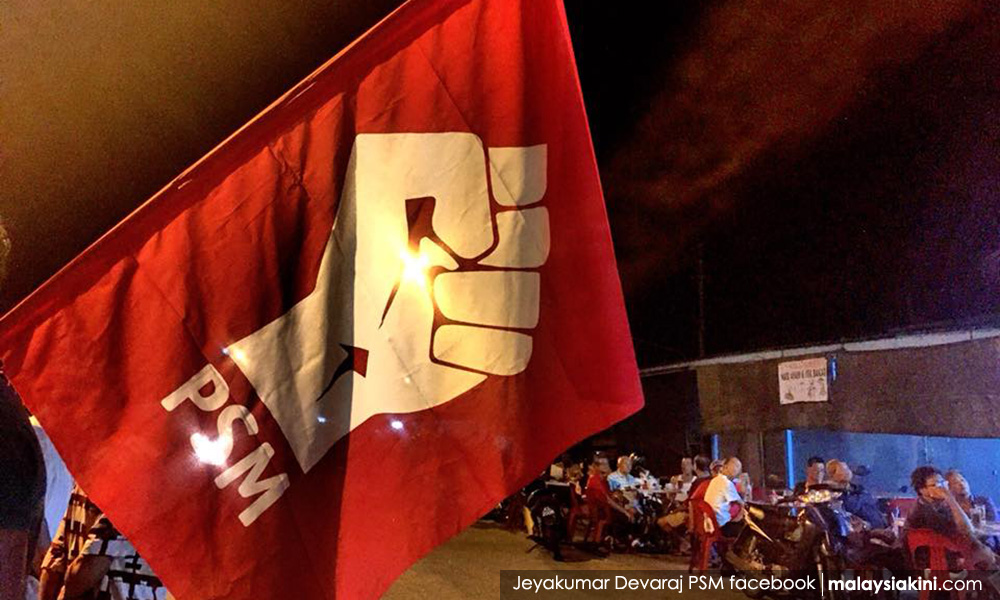
He thinks that today’s socialists have to ask themselves how, given the current set of conditions, do we reallocate a larger part of the national income to the working people of our society and increase the revenue of the government without causing capital flight and unemployment.
“We also need to improve food and energy security so that the nation is somewhat insulated from supply shocks due to war and climate change.
“Other key moves are to strengthen the social safety net so we are really more inclusive and reduce the influence that the corporate sector has over the government. Public funding of political parties is one of the planks of such an effort.
“We should also empower people to take greater responsibility for their workplaces and their residential areas and towns and address climate change,” he added.
Jeyakumar has often emphasised that Malaysia must work with other Asean countries to redraft the Free Trade Agreement to make them less pro-corporate and more pro-people.
“We, the socialists of the 21st century, will need all the insights and analytic tools found within Marxist theory (as well as other bodies of theory) to handle the above issues successfully,” he said.
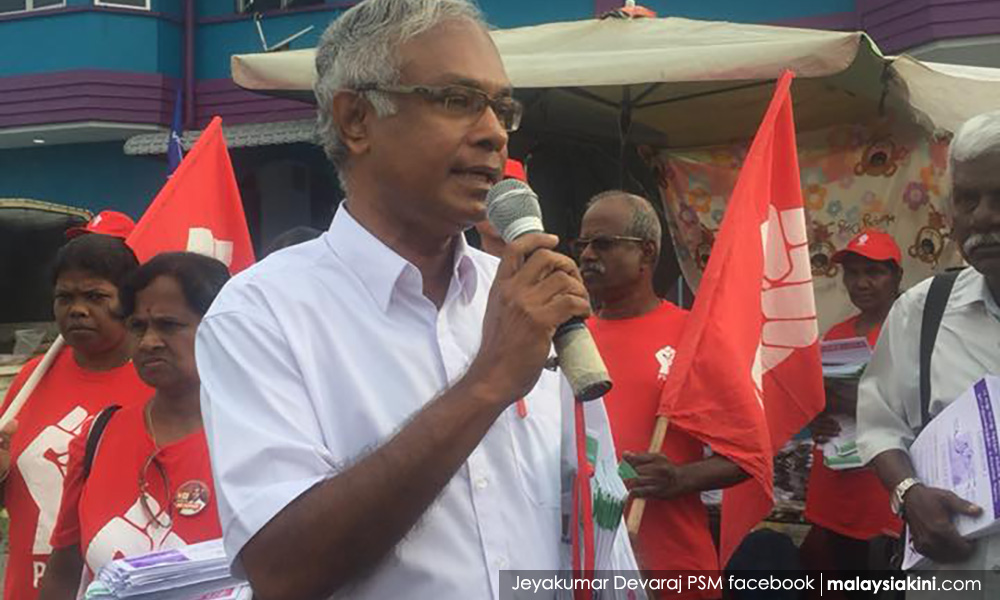
Relationship with others
While PSM no longer enjoys close ties with Harapan, its relationship with the rump Parti Rakyat Malaysia is something that might be built upon.
“It is improving. At the latest PRM Congress in March 2022, the PRM decided to work with PSM. This is something we welcome.
“The PRM has an illustrious history of struggle and has a set of principled and dedicated leaders, many of whom were persecuted by the British and the Malaysian state for their beliefs,” he said.
Could the two parties not merge and at least house Malaysia’s socialist history in one home?
“Merging should only be considered after a long process of collaborating on common projects. Otherwise, differences in political assessments, opinions and work cultures will create multiple planes of friction which would needlessly waste the energies of both parties.
“Our intention in PSM is not primarily to document the history of the Malaysian left. It is rather to open a new chapter of left-wing involvement in the political process of the country.”
Rewards in the personal struggle
Jeyakumar is aware that it is possible to spend a whole life as an activist without seeing meaningful change.
“It happened in Malaysia for many in the Socialist Front, who spent years in detention under the ISA, only emerging to see that the political arena had been taken over by ethnic-based parties.
“They were not fortunate like the martyrs of the ANC (African National Congress), who finally saw the fruition of their struggles when Nelson Mandela became the president of South Africa.”
Still, he never despairs that the situation will improve.
“I take the longer view. 100 years ago, my paternal grandfather would have been 38 years old – a railway clerk in Malaya. If someone told him then that within 40 years, all the countries of Asia and Africa would be free to determine their own futures, or that he and his wife would be given the right to vote for the government they wanted, he probably would have thought that person mad.
“Women in Europe only got the right to vote about 100 years ago. That right cannot be taken away now.
“What we need most now is a universalist socialist approach to rally the peoples of the world against pro-corporate policies as well as against ethno-populist political aberrations so that the energies of the people can be used to construct a fairer sustainable society for all,” he said.
As he nears 67, Jeyakumar is not really slowing down.
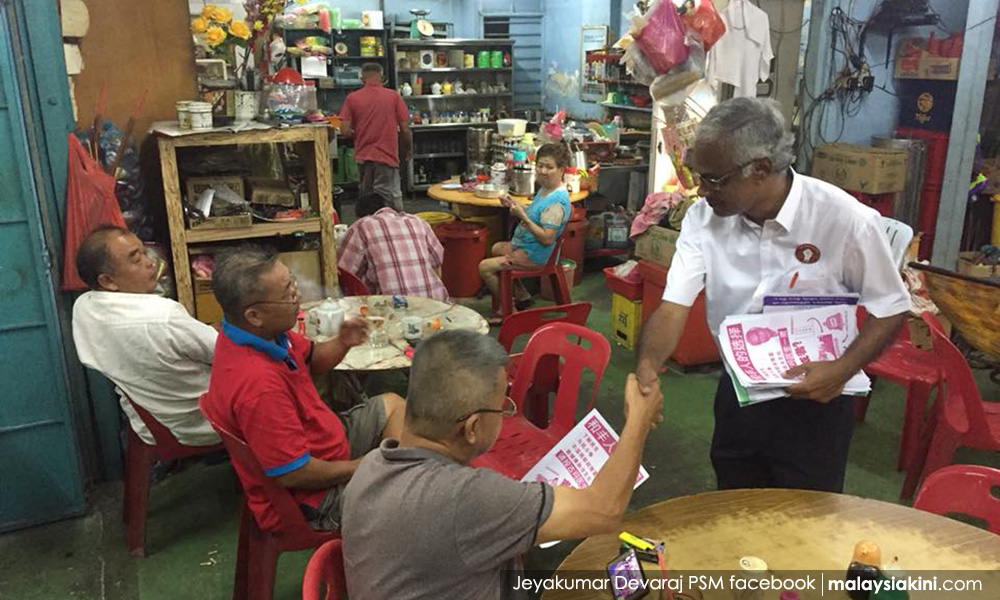
“I am extremely fortunate that I have been able to spend my time doing what I believe in ever since I started working – in the medical field, as a social activist, as a politician and as a public intellectual.
“I still run a clinic once or twice a week in a private hospital. People from Sungai Siput and elsewhere still regularly contact me for a host of personal problems ranging from citizenship matters, housing loans, Socso applications, labour issues and legal matters.
“I work with PSM members with a number of communities facing problems – urban pioneers, estate workers and vegetable farmers facing eviction – and am involved in multiple campaigns addressing their issues.
“I am the head of the PSM Bureau on Policy Research. We recently came out with a memorandum on urgent measures required to handle the rise in food prices that will result from the troubles in Ukraine.
“So I do have quite a varied and interesting daily programme,” said the veteran. - Mkini



No comments:
Post a Comment
Note: Only a member of this blog may post a comment.